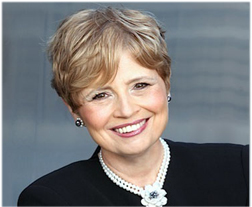By Robert D. Thomas
Music Critic
Southern California News Group
Los Angeles Philharmonic: Gustavo Dudamel, conductor
Schubert: Symphony Nos. 5 and 6; Mahler’s Rückert-Lieder; Sasha Cooke, mezzo-soprano
Thursday at Walt Disney Concert Hall
Next performance: Tonight at 8 p.m. (see also Hemidemisemiquavers at the bottom of this review
Information: www.laphil.com
On a night at Walt Disney Concert Hall when the Los Angeles Philharmonic honored outgoing Deborah Borda, the orchestra’s music making was more important than the accolades for its outgoing President and Chief Executive Officer. That was only appropriate. As Borda noted in her remarks, “It all begins with the orchestra.”
The evening was the third of four programs pairing symphonies by Franz Schubert with a song cycle by Gustav Mahler, a series that Linda Shaver-Gleason noted, “features symphonies from a prolific songwriter and songs from a prominent symphonist, two figures on the end of the Romantic era.” In this case, the program was Schubert’s Symphony Nos. 5 and 6 with Mahler’s Rückert-Lieder.
Last night’s performance revealed just how far the young Schubert had come in the art and craft of the symphony — despite the fact that he was 19 when he wrote his fifth symphony and 21 when he completed his sixth. That maturation had been increasingly evident in the first four symphonies. In the fifth he took a radical turn. Heavily influenced by Mozart, Schubert’s fifth has no clarinets, trumpets or timpani and just one flute — as Dr. Lorraine Byrne Bodley noted in her thoughtful preconcert lecture, that’s the same scoring as Mozart used in his Symphony No. 40.
Schubert’s Symphony No. 5 is a light, airy work that was intended not for a concert hall but for a salon. Dudamel and the Phil made Disney Hall sound as intimate as a Viennese living room and Dudamel, conducting without a score as has been the case throughout the cycle, allowed the interplay between strings and winds to shine through clearly.
 The tributes to Borda (pictured left) — who will become New York Philharmonic’s President/CEO on Sept. 15 — came between Schubert’s fifth and the Mahler, appropriate since the full-sized Phil was onstage for the latter. LAPO Board Chair Jay Rasulo made appropriate and brief remarks while Dudamel and Borda exchanged deeply felt words about her tenure with the orchestra, one of the highlights of which was her decision to hire Dudamel to succeed Esa-Pekka Salonen as the Phil’s music director in 2009.
The tributes to Borda (pictured left) — who will become New York Philharmonic’s President/CEO on Sept. 15 — came between Schubert’s fifth and the Mahler, appropriate since the full-sized Phil was onstage for the latter. LAPO Board Chair Jay Rasulo made appropriate and brief remarks while Dudamel and Borda exchanged deeply felt words about her tenure with the orchestra, one of the highlights of which was her decision to hire Dudamel to succeed Esa-Pekka Salonen as the Phil’s music director in 2009.
Left unspoken was what was in a printed brochure distributed with to patrons that gave Borda’s bio and a timeline of her — and the orchestra’s — accomplishments since she was hired in 1999. On the back of the brochure was the announcement that the Phil has established the “Debora Borda Women in the Arts Initiative,” to “support the participation of emerging female artists — conductors, musicians, vocalists and designers — in LA Phil performances and on its artistic staff.” This sort of seems like bringing coals to Newcastle, but it’s nice to formalize efforts that have been ongoing throughout Borda’s tenure.
Mezzo-soprano Sasha Cooke was the soloist in Mahler’s Rückert-Lieder last night; she was a last-minute replacement for Elīna Garanča, who withdrew for “personal reasons.” Fine by me — Cooke’s reading of Mahler’s treatment of Frederich Rückert’s texts was appropriately understated, delivered with a lusciously creamy voice.
Dudamel and the Phil provided sensitive accompaniment and, as was the case with the first two song cycles in this series, the final movement — “In bin der Welt abhanden gekommen,” with Carolyn Hove’s elegant solos on the oboe d’amore — left the audience spellbound.
Schubert originally called his Symphony No. 6 his “Grosse Sinfonie in C” but dropped the appellation after writing his final symphony, which became known by that title. In what we now know as “The Little C-Major,” Schubert returned to the scoring he had used in his Symphony No. 4, adding back in two clarinets, two trumpets and timpani (Principal Timpanist Joseph Peirera used the same period instrument-style kettle drums that he has employed for the cycle).
In writing his sixth symphony, Schubert was influenced by the Italian music style that was prevalent in Vienna during the second decade of the 1800s, particularly Antonio Salieri (with whom Schubert studied), and Rossini, who was extremely popular during that time. Dudamel and the orchestra delivered the work with sparkle and wit.
Hemidemisemiquavers:
• After this program repeats tonight, the cycle concludes Saturday and Sunday with performances of Schubert’s eighth and ninth symphonies, paired with Mahler’s Songs from Das Knaben Wunderhorn, with Cooke as soloist. Information: www.laphil.com
• If you like to compare and contrast, Schubert’s Symphony No. 9 is also on the program for this weekend’s Los Angeles Chamber Orchestra programs, Jeffrey Kahane’s final concerts as LACO music director. As I noted in my “Five Spot” post (LINK), you can either catch Schubert’s Symphony No. 9 played by LACO on Saturday and the L.A. Phil on Sunday, or you’ve even got time to hear both ensembles on Sunday. Information: www.laco.org
• For those keeping track of numbers, there is no completed edition of Schubert Symphony No. 7 (LINK), although some people renumber Symphony Nos. 8 and 9 as Nos. 7 and 8.
________________________
(c) Copyright 2017, Robert D. Thomas. All rights reserved. Portions may be quoted with attribution.
